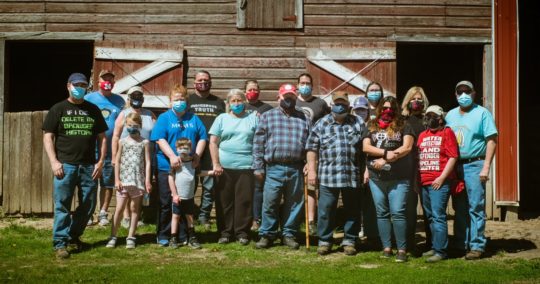Editors note: Monday (today!) is the last day for comments to the State Dept on the areas they should study this time around.
The U.S. Department of State (DOS) is currently asking for comments on scoping for the study of the latest version of the TransCanada Keystone XL pipeline. “Scoping” defines the different items and issues DOS will research and evaluate in order to estblish criteria for approval or denial of the pipeline project. What DOS studies, and how they study it, is critical to the effectiveness of their evaluation of the pipeline project, and it is up to citizens to suggest important items of concern that will affect us, our land, water, economy and communities.
Bold and other groups have signed a joint letter to DOS, but it is also critical that citizens send in their own comments by July 30th.
Some suggestions that are important to the DOS study are:
1) DOS should not use TransCanada’ map which designates the Sandhills (and a convenient pipeline corridor through them), but rather a map that indicates soil types and depth to groundwater. Citizens and landowners have already expressed concern that land within TransCanada’s new proposed corridor is Sandhills and sandy soils with a shallow water table.
2) DOS should develop a map that shows the proximity of the pipeline to families’ and municipalities’ main sources of drinking water. The proximity of the pipeline to drinking water is a critical element in determining its risk, as is the availability of testing for water and wells near the pipeline corridor.
3) DOS should study the climate impacts of tarsands oil, from the highly energy-intensive extraction process to the emissions caused by burning refined tarsands in automobiles. It is well-known that tarsands use much more energy to produce and release much more carbon into the atmosphere when used. What will be the environmental and economic (especially agricultural) impacts of the carbon emissions of this fuel source if we continue to increase our use of it?
4) DOS should do a complete study of the full revised route, not just the new proposed corridor in Nebraska. DOS’s previous use of Cardno-Entrix as a contractor was a conflict of interest and clearly favored TransCanada’s interests at the expense of citizens, our land and water. As such, a full study should be done on the entire route in order to have an effective process.
5) DOS should extend the public comment period from 45 to 75 days in order to give citizens, landowners, and groups more time to participate and send in coments. Right now the state of Nebraska is struggling with a deepening drought. Farmers, ranchers, volunteers and neighbors in northern Nebraska very near to the pipeline route are fighting range fires, working around the clock to keep their land, livestock and communities safe. FEMA and the National Guard have even been deployed to assist with the firefighting efforts. Nebraskans, many of whom are in disaster mode, need more time to comment on this critical project that will affect their lives for many years to come. A 30-day extension is not too much to ask for these brave, hardworking people.
These are just a few suggestions. Of course, the best comments have always come from citizens who are actively engaged in the process. You are the expert about your own life, land, community and concerns. Please take a few minutes to share your expertise with the State Department.
Send your comments to keystonecomments@state.gov. It is a good idea to cc yourself and info@boldnebraska.org so we have proof it was submitted, since last time Cardno Entrix “lost” some comments. Comments are due July 30th.
In the meantime, try to stay cool, drink plenty of clean, Ogallala aquifer water, and hope that we will get some rain soon!



